Mullins Benchmarks: GPU Performance, Memory Bandwidth, Cache
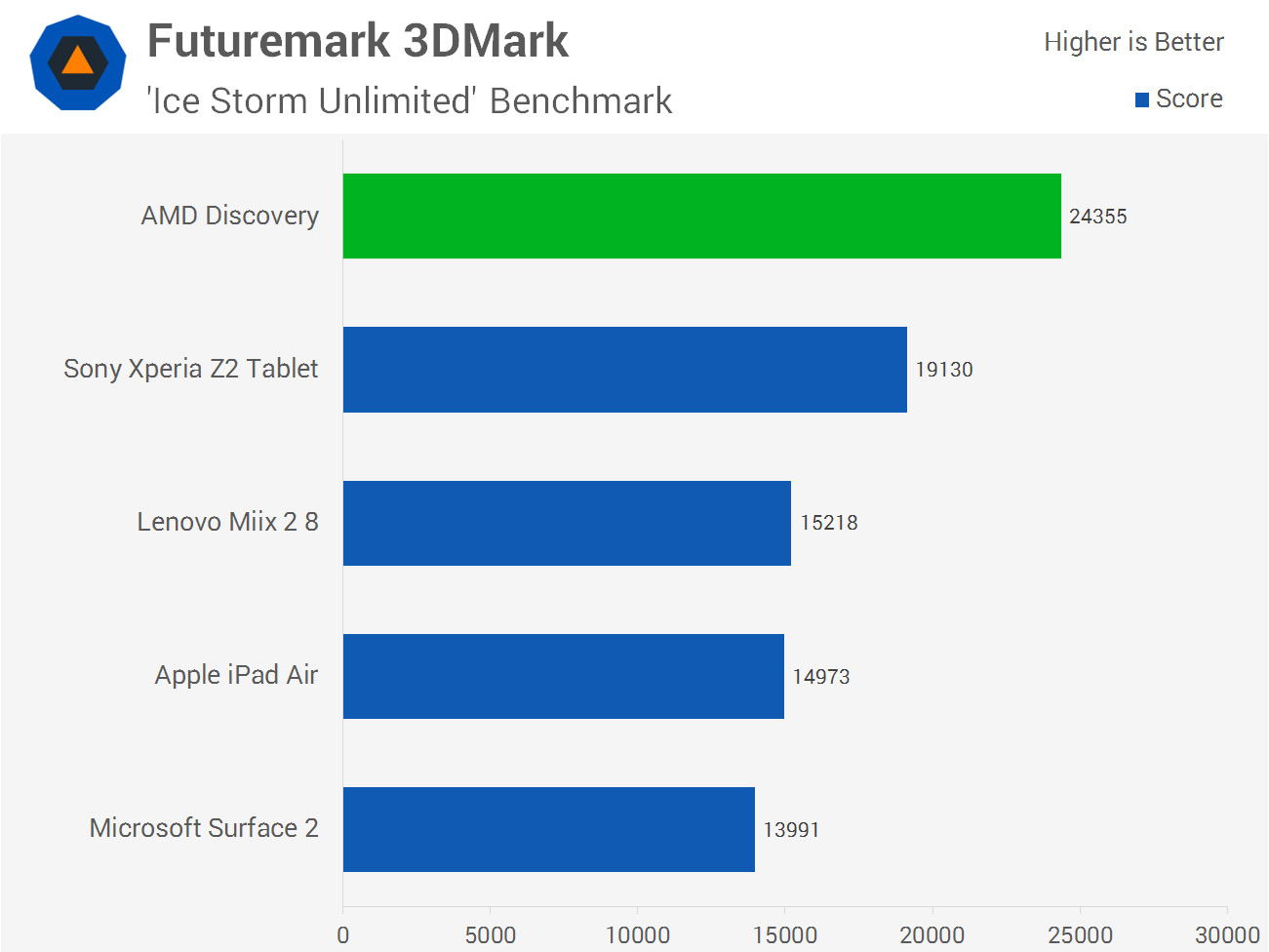
In the first of the graphics-specific benchmarks I ran, we get to see the dominance of AMD's Mullins APU in the GPU department. Mullins absolutely crushes Bay Trail-T by 60% in 3DMark Ice Storm Unlimited, while also beating ARM SoCs by a similar margin.
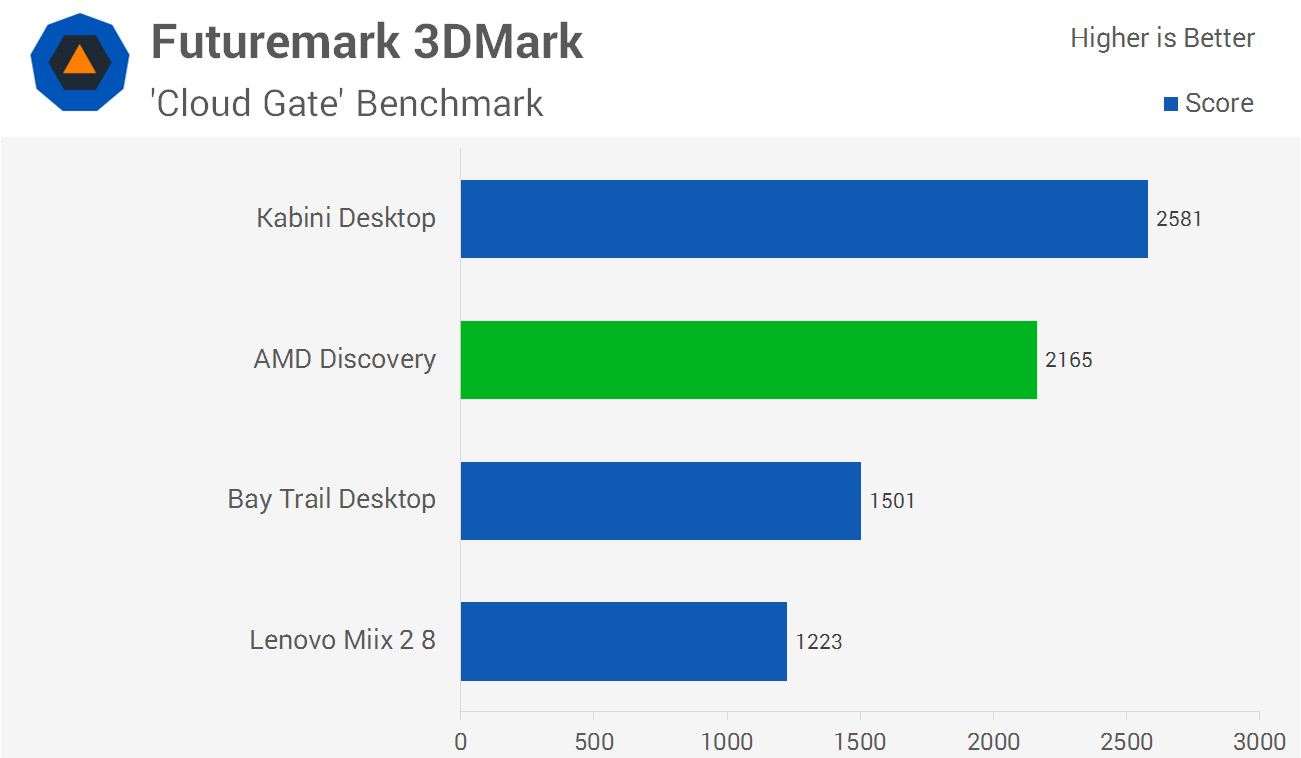
In the significantly more intense Cloud Gate benchmark, Mullins again crushes Bay Trail-T by 77%. AMD's 25W desktop Kabini APU benefits from the higher power requirements by beating Mullins by 19%, but let's not forget that Kabini requires 5.5x the power. By now it should be obvious that AMD has made serious headway into improving energy efficiency, which is key for a tablet-oriented APU.
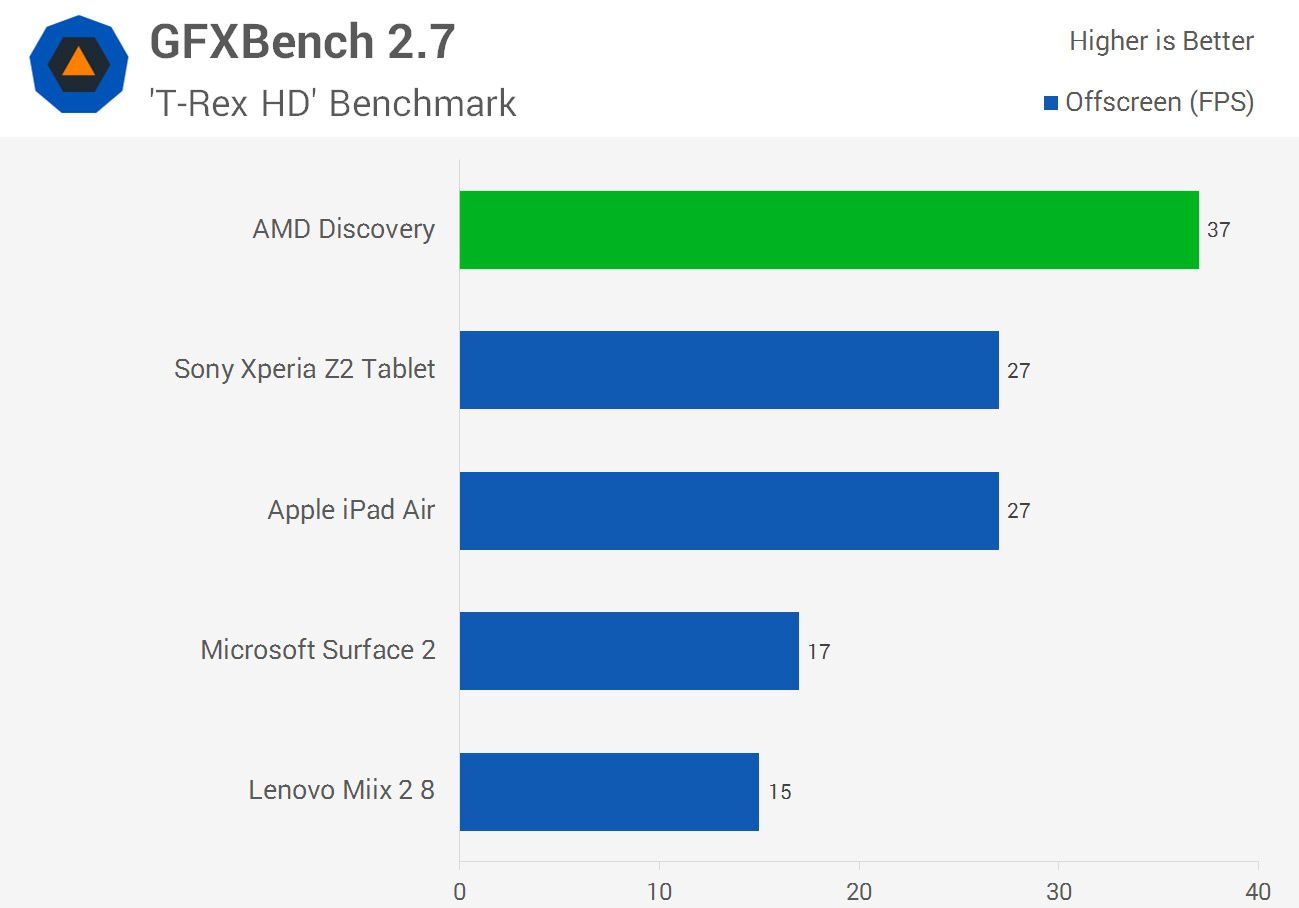
In GFXBench, the Discovery tablet is by far the best performer out of all those I've tested. It crushes Bay Trail-T once again, while managing to outperform the PowerVR G6430 in the Apple A7 SoC by 37%.
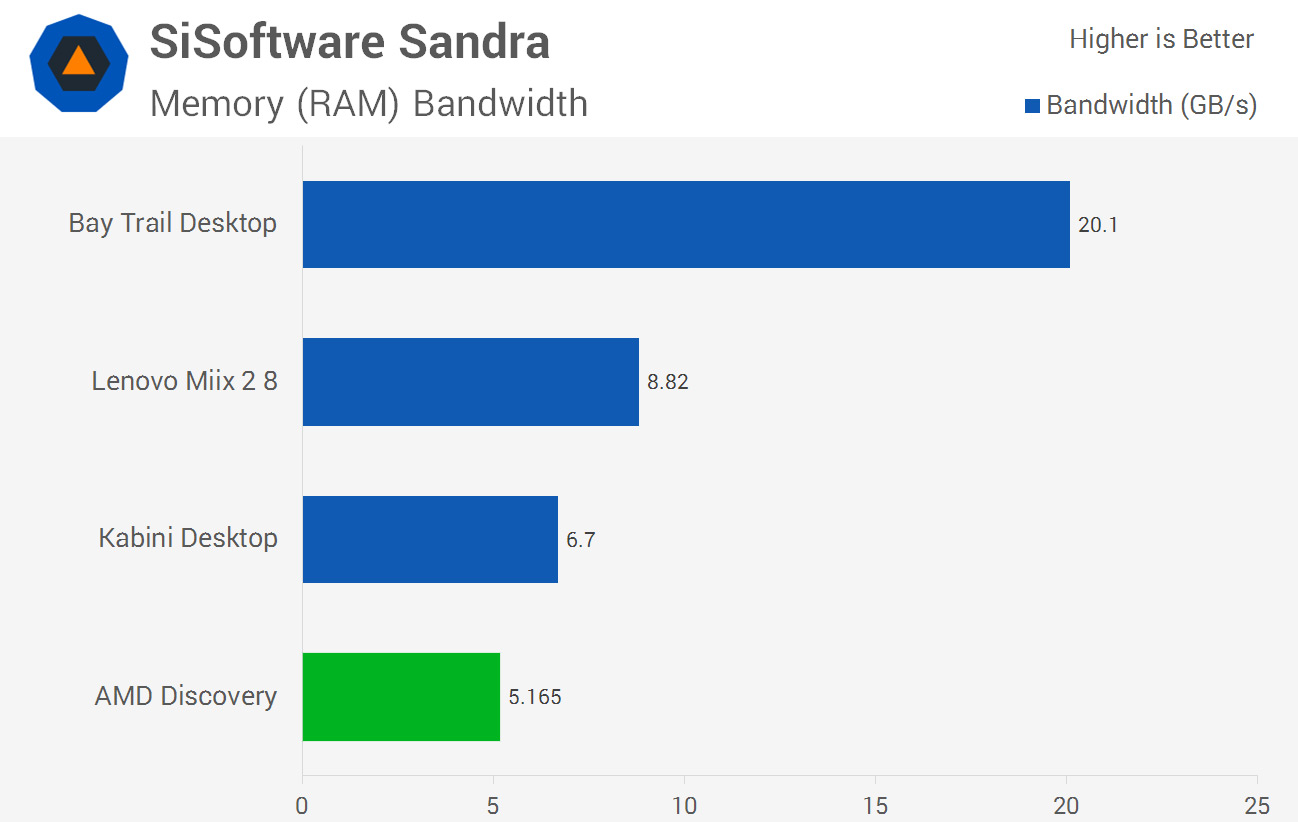
Time to take a look at the memory bandwidth supported by AMD's Mullins APU, and it's clear that Intel's Bay Trail-T has a significant advantage here (for once). Mullins may support DDR3L-1333 while Bay Trail supports just LPDDR3-1066, but Mullins' single-channel controller lets it down, as Bay Trail's dual-channel memory dominates Mullins by 71% in this benchmark.
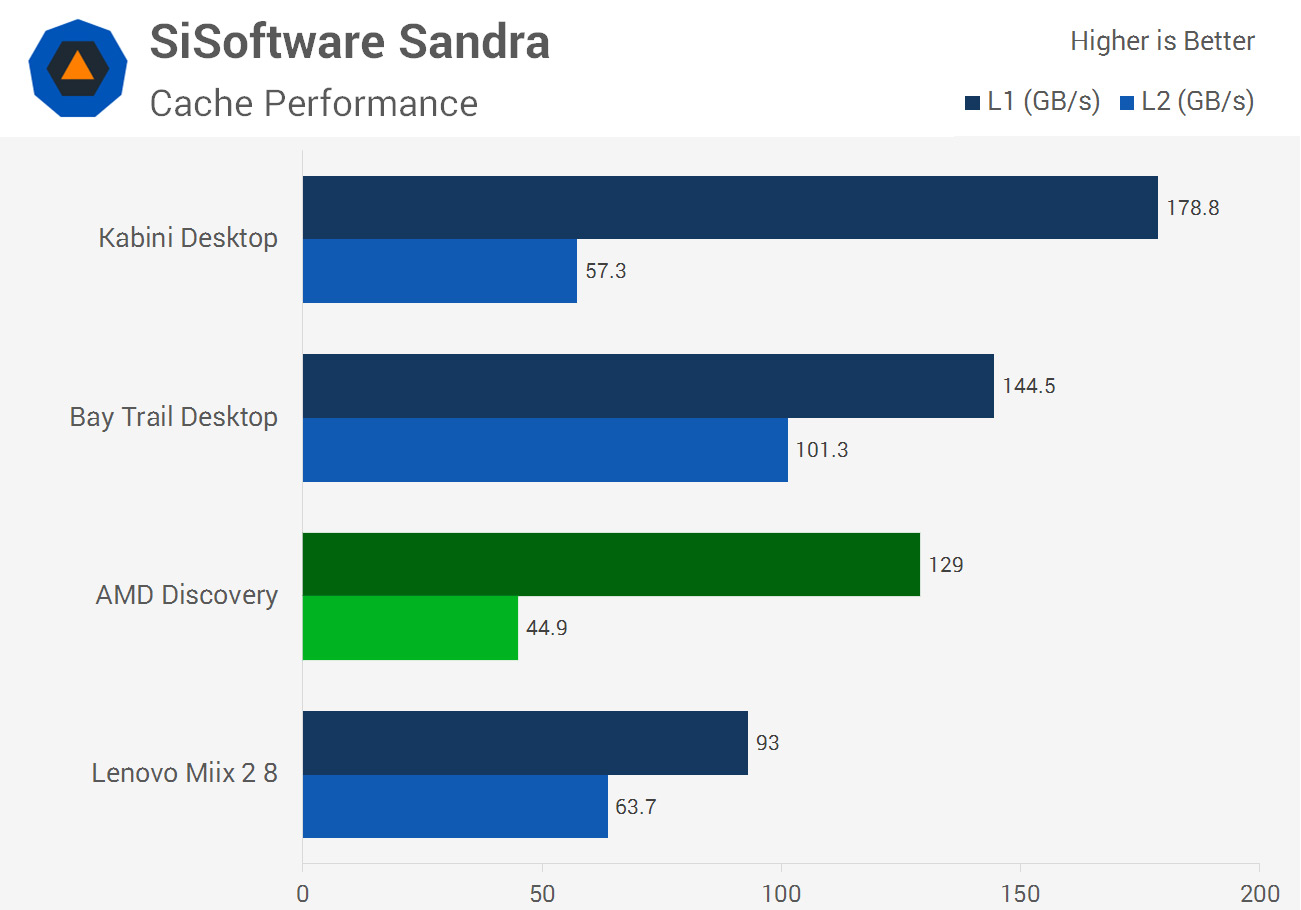
Mullins' cache performance is typical of AMD APUs in the past. L1 cache is very fast, outperforming Bay Trail-T by 39%; however the APU's L2 cache is 30% slower. In memory-centric or data heavy applications the lacking L2 cache and memory controller performance might have an effect, but with wins in every other benchmark I'm not concerned just yet.
It's worth noting that all the benchmarks were ran with the AMD Discovery tablet plugged in to AC power. When the tablet is benchmarked on battery power, I noticed a roughly 10% performance drop as the Mullins APU switches to using a more aggressive boost algorithm in attempt to lengthen battery life.
In comparison, you don't see any performance drop on battery power with Intel's Bay Trail Z3740. Obviously it's not great to see a performance reduction on battery, but if it does lengthen battery life I might be kind to the way AMD deals with power gating. As I only had limited time with the Discovery reference tablet and couldn't examine battery life on Mullins devices, I'll wait until I get longer hands-on time with an OEM's Mullins-based tablet before making any further judgements.
